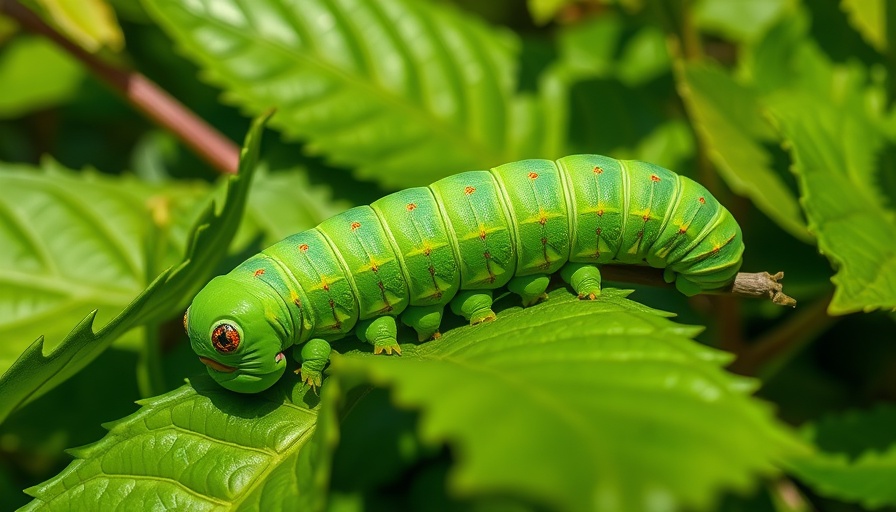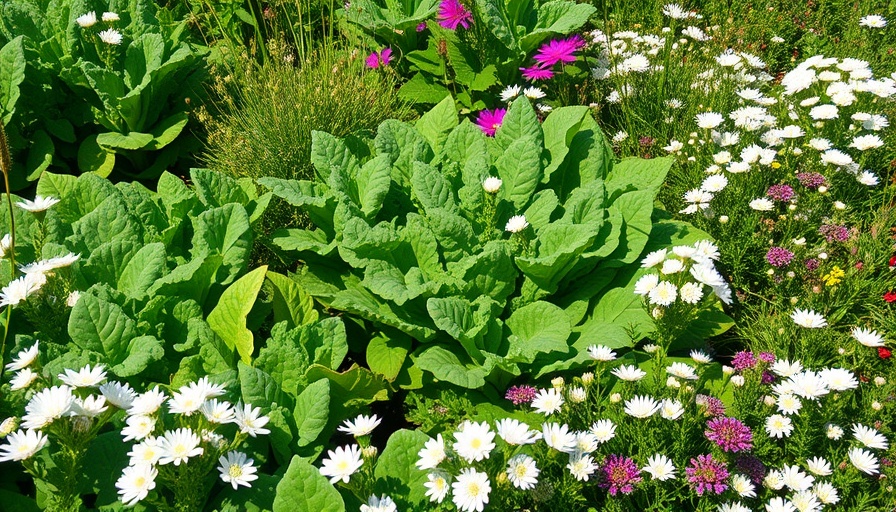
Why Supporting Butterflies Matters to Our Ecosystem
The alarming decline of butterfly populations presents a pressing ecological crisis. As essential pollinators, butterflies help sustain food crops and a vast array of plant life. Their absence can lead to a domino effect on our ecosystems, affecting everything from local flora to food availability. The recent findings published in the journal Science underscore the gravity of the situation, revealing a dramatic reduction in butterfly numbers across the U.S. If everyone took steps to create environments that nurture these beautiful creatures, we could reverse some of this decline and contribute positively to our environment.
Understanding the Lifecycle: From Caterpillar to Butterfly
Many people think of butterflies solely as the colorful creatures flitting through gardens, but they spend most of their lives in a vulnerable caterpillar stage. Caterpillars require specific host plants where they can feed after hatching. This relationship between caterpillars and their host plants is crucial for their development into butterflies. For example, the monarch butterfly is famously reliant on milkweed, while zebra swallowtails depend on the pawpaw tree. Without planting the right species, many caterpillars won't be able to thrive, meaning fewer butterflies will emerge to pollinate our gardens.
Choosing the Right Plants: Regional Considerations
The types of plants you should consider for encouraging local butterflies greatly depend on your geographical location. Utilizing resources like the National Wildlife Federation's plant finder tool can help you discover which plants serve as essential “caterpillar food” in your area. The right plants not only foster caterpillar growth but also provide nectar for adult butterflies, creating a self-sustaining environment.
Innovative Gardening Practices to Attract Butterflies
To encourage healthy butterfly populations in your garden, consider integrating a variety of native plants that can offer both food and habitat. Native plants are adapted to local climate conditions, require less water, and, importantly, support local wildlife. Additionally, avoiding pesticides will allow butterflies and other beneficial insects to flourish in your garden.
Emotional Benefits of Butterfly Gardening
Creating a butterfly garden can be incredibly rewarding on a personal level. Many find joy in witnessing the transformation from caterpillar to butterfly, which brings a connection to nature that can enhance well-being. This process can be particularly enriching for families, allowing children to learn about ecosystems and the magic of life cycles firsthand.
Future Trends: What Lies Ahead for Butterfly Conservation
Experts predict that as awareness around the decline of butterfly populations grows, more gardeners and landscapers will dedicate their spaces to conservation efforts. Butterfly gardening is becoming a trend supported by eco-friendly practices. As we collectively recognize the importance of these creatures, conservation efforts will likely evolve, driven by community engagement and education. This could lead to cleaner, healthier ecosystems and communities motivated to support nature.
Actionable Steps Towards Creating a Butterfly Friendly Environment
Want to contribute to saving butterflies? Start by planting native plants in your yard or community gardens. Engage with local environmental groups that focus on butterfly conservation. Share your knowledge and passion with your neighbors so that they, too, can help cultivate an inviting space for butterflies.
As the world becomes increasingly aware of butterfly decline, individuals hold the power to reverse this trend through simple gardening practices. By planting caterpillar food, we not only support these beautiful insects but foster a rich ecosystem that will thrive for generations to come.
 Add Row
Add Row  Add
Add 






Write A Comment